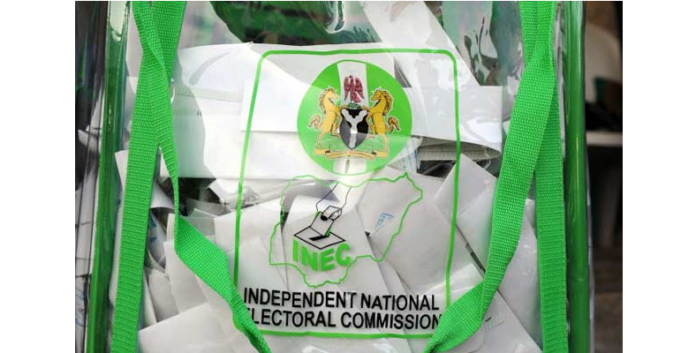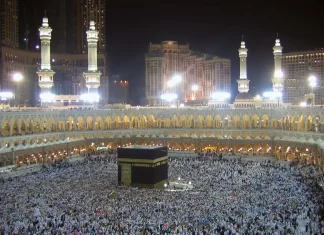By Edwin Madunagu
In a couple of weeks Nigeria will begin another round of general elections. This coming round of the four-yearly ritual, re-started by Nigeria’s ruling class in 1999 to herald the Fourth Republic, will be different in at least two respects from earlier ones. In the first place, the number of officially participating political parties and candidates will be very much larger; and, in the second place, there are participating parties and candidates that are Leftist or socialist, and are officially named and listed as such.
However, only about five or six of the participating political parties can actually be described, even by Nigeria’s historical standards, as political parties. But they are officially recognized and registered by the electoral agency as such. Other political formations that had unsuccessfully applied for recognition and registration are known—again, officially—as “political associations”. Formations that had not applied at all simply do not exist in the eyes of the Nigerian state. In this last category fall several radical or protest groups—including Leftist ones— and all shades of anti-state and insurgent organisations. Whether or not, and in what way the Nigerian state draws distinctions between them are not known. We may provisionally designate the five or six political parties mentioned in the first sentence of this paragraph as “strong”. Others in the same league of official political parties may be called “weak”.
The participating political parties can be roughly separated into the following groups: dominant capitalist ruling class parties; protesting capitalist ruling class parties; left-of-centre populist parties; reformist parties and Leftist parties. Of these groups only the first—and there are only two parties in this group—has a chance of producing the president—unless a major political accident occurs. And, going by the current political alignments in the ruling class and the way money and state power are being deployed in the current period, particularly in the current campaigns, the two parties, combined, may take almost all the positions being contested in Elections 2019.Readers are invited to a light mental exercise. As introduction, I propose that, for the working, toiling and poor masses of this country, quality of life in the last eight years has progressively deteriorated. Now, go back to Elections 2015 and construct an aggregate (that is, summation) of the former campaign manifestoes and promises—including lies and propaganda—of the two leading political parties in that contest: the ruling People’s Democratic Party (PDP) and opposition All Progressives Congress (APC). Then return to the present and do the same thing (summation of manifestoes, promises, lies, false claims, boasts, etc.) for the two current leading parties. You will discover, first, that the two leading parties for the 2015 elections are also the two leading parties in Elections 2019. The only difference is that their positions are now reversed: the 2015 ruling party is now the main opposition party, while the 2015 main opposition party is now the ruling party. You will also discover—and this is the high point in this exercise—that there is no substantive difference between the 2015 aggregate and the 2019 aggregate. I shall return to this point and conclude with it.
Although the number of strong political parties is small there are several serious presidential, governorship and legislative candidates—where by “serious” I mean possessing demonstrable knowledge, respectable postures and impressive antecedents. However, almost all the serious candidates carry the flags of weak political parties. Here we are: Serious candidates on weak or nebulous political party platforms—both sets approved by the Nigerian state. The emergence of this phenomenon must have been influenced by what took place—and some would say, still taking place—in America and Western Europe over the last couple of years. But the phenomenon cannot be regarded as a new stage or a new tendency or a new trend in global or “Western” history of liberal democracy.
I propose that what we have seen or are seeing in America and Western Europe are products of political conjunctures in the contemporary history of global capitalism and imperialism. These political conjunctures produced Donald Trump (America) and Emmanuel Macron (France). Between the two World Wars similar political conjunctures produced Adolf Hitler. Political conjunctures can produce “angels” from the blues; they can also produce “devils” from hell. But none lasts for too long. They disappear without successors. As in the past, the lessons of the present conjuncture will be learnt both at the centre (America and Western Europe) and in the peripheries (Nigeria, etc.) of global capitalism. In Nigeria the lessons will be more critical for the Left. Why? Because it is the Nigerian Left that wants to change Nigeria for the benefit of victims of a decadent social order.
The central lesson for the Nigerian Left will not, as many would think, issue from the decision to take part in electoral politics and in elections under the present sociopolitical and constitutional order. The decision to participate was informed by history, and then, by the balance of forces: global and national. Rather, the central lesson will issue from the nature and character of the revolutionary programme and strategic organizational framework within which the decision to participate was taken and put into effect – and, also, the tactical choices of forms of participation that were adopted.
Put differently, but simply and concretely: Is what we are seeing all that there is in the participating Leftist parties? Or, are they popular-democratic fronts of revolutionary formations? If what we are seeing is all that exists then the Leftist parties will disappear and vanish after the 2019 elections for which they were designed. But if they are backed by revolutionary formations, they will either not disappear at all or will disappear but re-appear as larger, stronger and more revolutionary formations.
An important conclusion from the preceding paragraphs is that Nigeria’s ruling class, as a ruling-class, has not been able to produce a winning party or a winning alliance of parties that can offer the people of Nigeria anything new. A genuine change—which, perhaps, is too late for Elections 2019—can therefore come either from the Nigerian Left or from an alliance of Leftist formations and genuinely reformist parties—an alliance in which the Left exercises ideological hegemony.
For the avoidance of doubt, by a genuine change I mean a radical and popular-democratic approach to the urgent problems of the nation—problems that are known by all and seen by all except those lying members of the ruling class that can be taught not by the inevitability of genuine change, but by change itself. And, again, for the avoidance of doubts, these problems can be summarized and grouped into three: Massive class exploitation and state robbery resulting in grinding mass poverty and misery; elitist understanding and practice of “democracy”, moral degeneracy and bankrupt governance ideas on the part of Nigeria’s ruling class; and the national question whose enormity and complexity not only the ruling class but also many progressives and liberals—and even Leftists—do not appreciate.
The Left-alliance being advocated must be able to come forward with a clear and credible declaration or manifesto that frontally addresses these problems and offers the working, toiling, poor and suffering masses of Nigeria—in their current regional, ethnic and cultural divisions—something genuinely new, concrete, immediate, unifying and hope-inspiring in their various struggles that are just and genuinely liberating. A tall order? Yes, a tall order. It is either this challenge or you join the exploiting and oppressing social forces or continue to dance around them—hoping, like them, that there will be another reprieve from an irreversible national catastrophe that will surely come if the nation continues on its present course.
Madunagu, mathematician and journalist, writes from Calabar, Cross River State, Nigeria.













